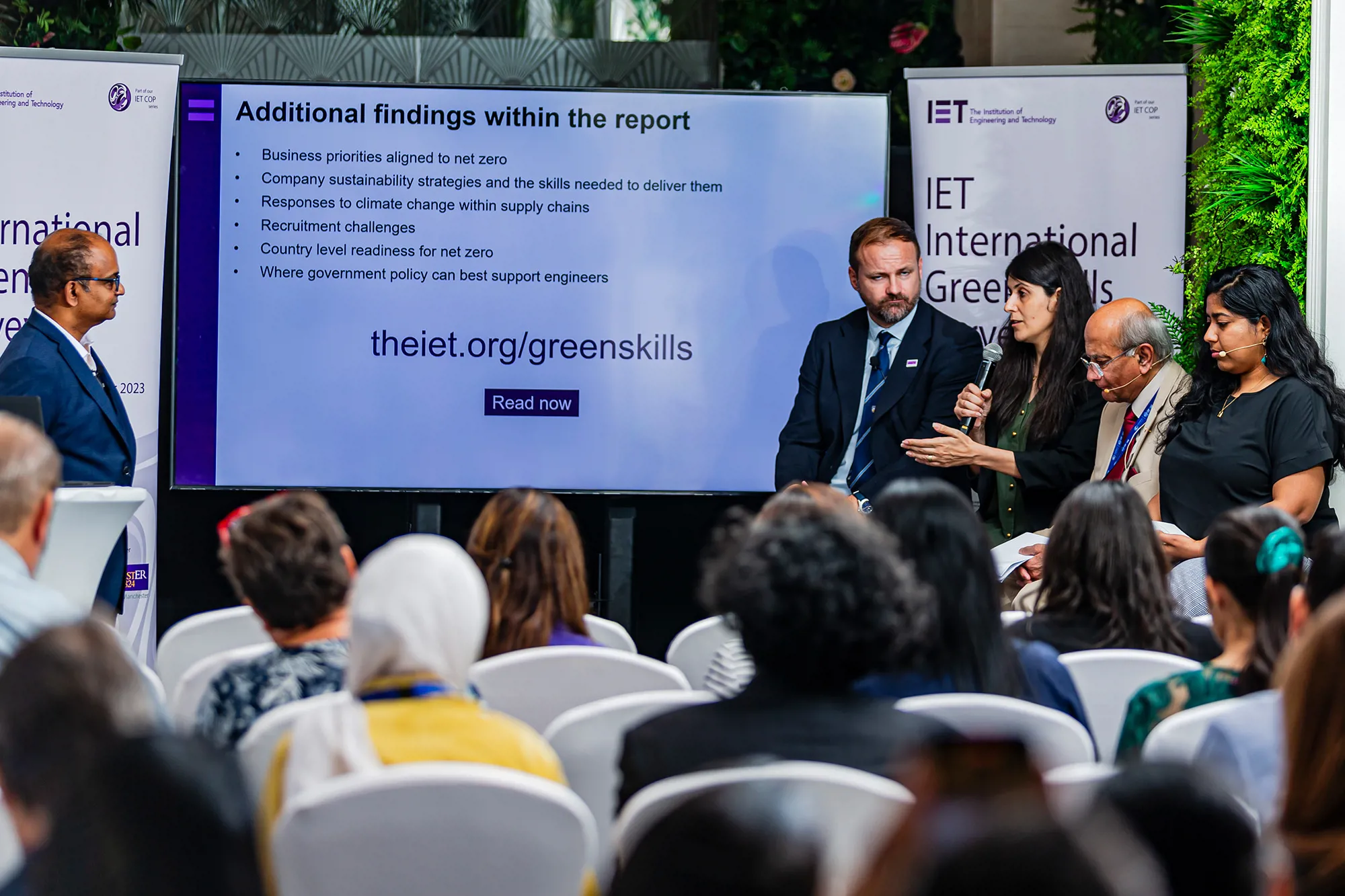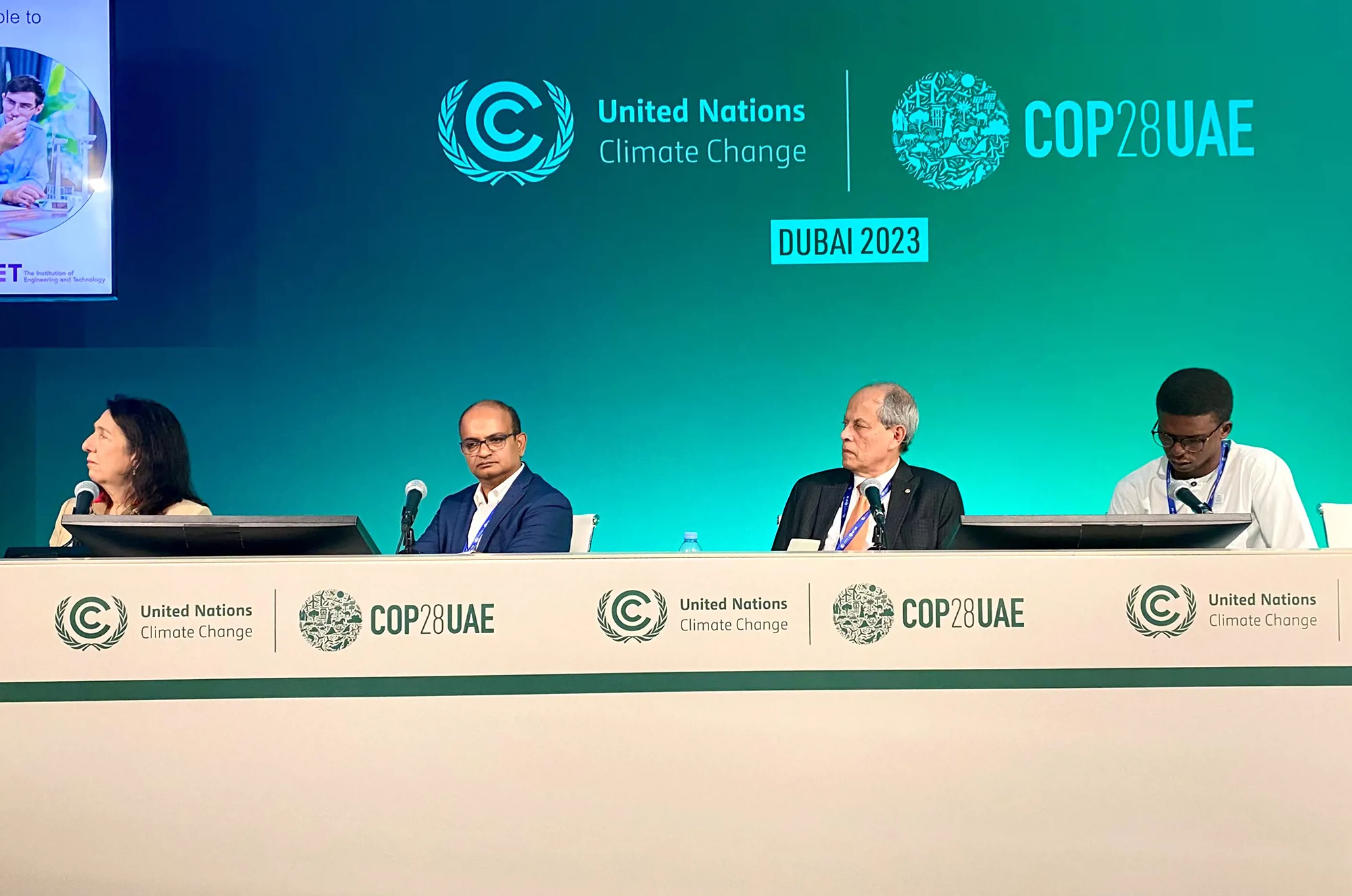Dispatches from COP28
Raising the profile of engineering skills at COP28
For COP28, we aimed to raise the profile of engineers and engineering in the fight against climate change and to open a conversation about skills gaps and how these can begin to be closed.
To do this, we undertook a series of events, both within the blue zone and wider Dubai area, to reach as many people as possible. By launching the International Green Skills Survey results, we had a conversation opener and used this to gather opinions and feedback from industry, academia and young engineers among others.
Our president, Dr Gopichand Katragadda, facilitated our main launch event on Thursday, 7 December at the Ritz Carlton DIFC, which allowed those without passes to the Blue Zone to attend. A discussion about the survey and its findings drew on the expertise of our panellists: Dr Alexander Gardner-McTaggart from The University of Manchester, Rawan Dababneh from Buro Happold, Professor Tariq Durrani from University of Strathclyde and Shakti Ramkumar from Student Energy.
The conversation challenged the role that education plays in preparing young people for industry, as well as how knowledge and skills can be disseminated in different ways and become more inclusive. Attendees were engaged in the event and several questions were asked of the panel.
On Friday, 8 December, we held our official side event within the blue zone, with our partners from the IEEE, Sustainable Development Solutions Network (SDSN), (who run the Council of Engineers for the Energy Transition (CEET)), and Student Energy.
The title of the event was Skills Development and Technological Tipping Points for Net Zero and opened with a joint presentation from the IET and Student Energy, comparing research on the skills gaps and expectations of young people vs industry, which was followed by a panel discussion by all partners.
Again, we had great engagement from the attendees and a large number of questions.

In addition to these events, Dr Katragadda presented our research at the Rotary International organisation’s Pavilion in the Blue Zone and was also interviewed by Breakfast Television and other local media in Dubai as well as the BBC World Service.
The breadth of these events and interviews ensured we reached the widest possible audience on a global scale, during this eminent climate conference. We plan to continue our work in this area, launching the skills survey in the countries that took part and encouraging the networks and partnerships that we forged during the conference for future work to continue to raise the profile of engineers in solving climate change.

We’re upgrading our systems, and this includes changes to our customer and member account log in, MyIET. It’s part of our big picture plan to deliver a great experience for you and our wider engineering community.
Whilst most of our websites remain available for browsing, it will not be possible to log in to purchase products or access services from Thursday, 17 April to Wednesday, 30 April 2025. Our Member Relations team is here to help and for many of our services, including processing payments or orders, we’ll be able to support you over the phone on +44 (0)1438 765678 or email via membership@theiet.org.
We apologise for any inconvenience this may cause and thank you for your understanding.
For further information related to specific products and services, please visit our FAQs webpage.
